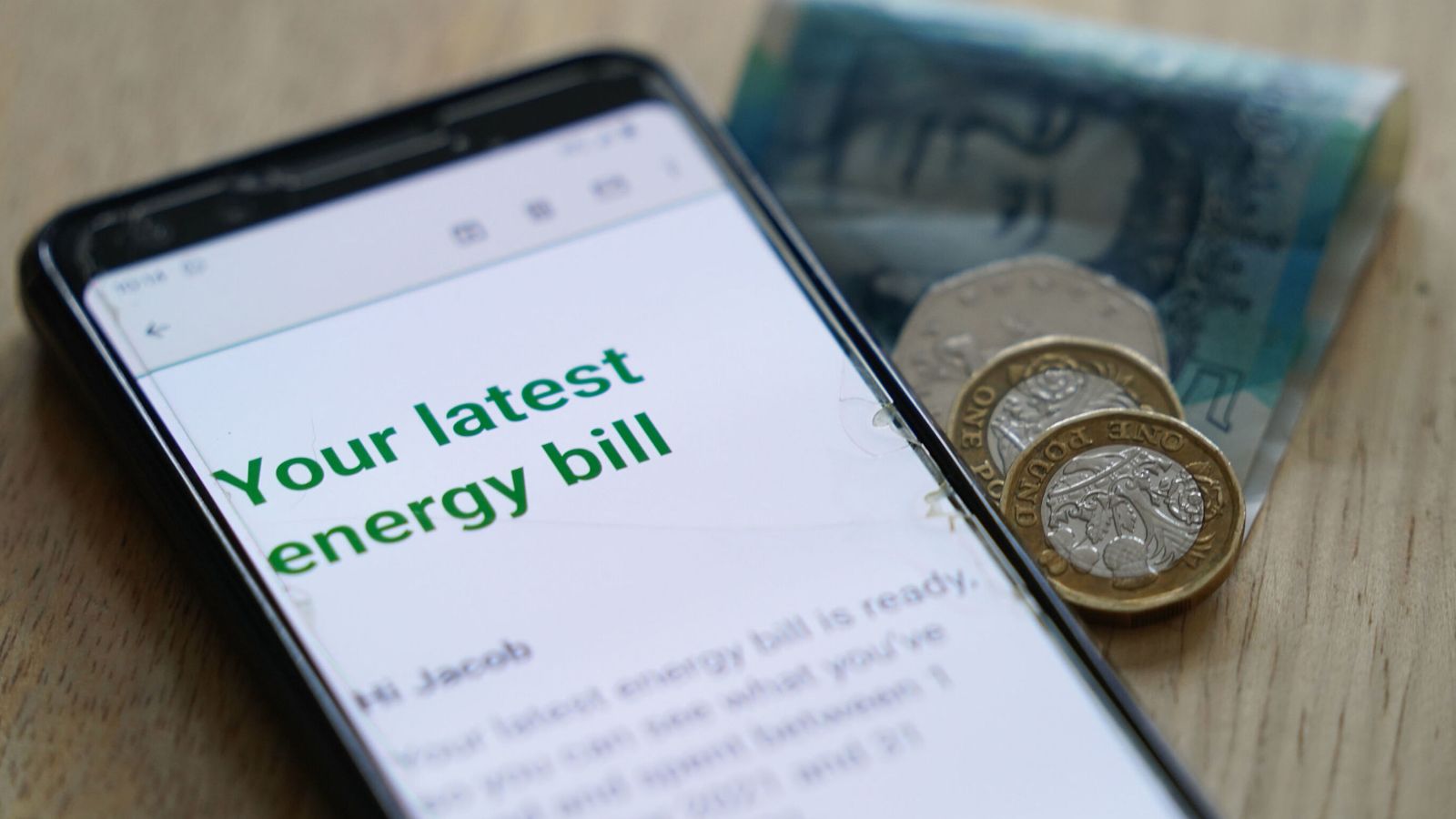Households under financial pressure must be supported ahead of an “inevitable” energy crisis this winter, MPs have told the government.
Many in the UK will be paying the same or even more over the winter months than they were a year earlier, despite wholesale market prices dropping.
It’s a scenario MPs on the Energy Security and Net Zero Committee say must be averted, warning ministers should make sure families who did not feel the benefit of last year’s £400 help get that money now.
The Warm Home Discount, which cuts bills by £150 over winter for those eligible, should be extended, they added, and the government should provide money ahead of cold spells.
“The nights are now drawing in and many of our most vulnerable people will be haunted by harrowing memories of the relentless sacrifices they were forced into last year,” said committee chair Angus Brendan MacNeil.
“In fact, one in four carry energy debts from last winter. With the challenge this winter threatening to be even worse, an announcement of support from the government is long overdue.”
Why will people be paying more?
Sunak’s new net zero policy: Are the Tories turning a lighter shade of green?
BP chief executive Bernard Looney quits £10m-a-year job over ‘past relationships with colleagues’
British Gas boss defends profits as charities predict tougher winter ahead for families
While prices on the wholesale energy market have fallen significantly since last year, many households will still be paying the same costs this winter – or even more.
That’s primarily because the government is not subsidising bills like it did last year.
The standing charge – a fixed daily amount customers pay regardless of how much energy is used – has also gone up.
Read more:
What is the energy price cap – and how will it affect my bills?
Energy price cap falls – but it would be ‘helpful’ to bring back support for families
Everything you need to know about the energy price cap change
This means bills are likely to be higher this winter even for those who use lower amounts of gas and electricity than average – because they pay the same standing charge as everyone else.
The MPs have called for the abolition of these standing charges, adding customers should pay for what they use.
“The mechanisms to provide assistance are already in place – the government and energy firms must now get on and act to reassure struggling households that they are not being left to fend for themselves,” Mr MacNeil said.
“The report noted the ‘unfair and regressive standing charges’ should go. After all you don’t pay a standing charge to buy petrol, you just pay for what you use.
“We also saw the wisdom in the need for a social tariff for those hardest hit and anyone with a modicum of empathy can see why.”
Please use Chrome browser for a more accessible video player
A Department for Energy Security and Net Zero spokesperson said the Energy Price Guarantee – which caps how much households pay per unit of energy – will stay in place until April next year, as Chancellor Jeremy Hunt announced in November.
Additional targeted support is available to those most in need through the Warm Home Discount, they added, with “3 million of the most vulnerable households expected to benefit”.
“We recently launched our £1bn Great British Insulation Scheme to help more than 300,000 families save on bills and heat their homes,” they said.
“We continue to keep all options under review, including for the most vulnerable, households.
“Landlords must respond swiftly when dealing with damp and mould to ensure renters can live in safe and decent housing and the government will introduce Awaab’s Law, setting time limits on social landlords to make repairs.”






